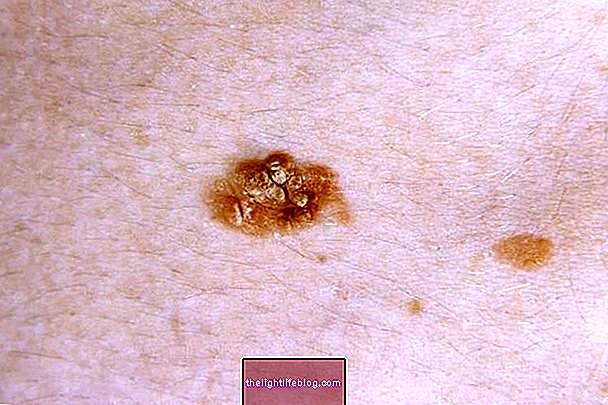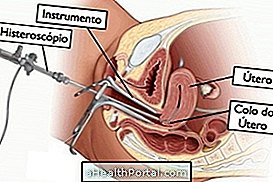Ascariasis is an infectious disease caused by the development of the parasite Ascaris Lumbricoides, also known popularly as roundworm or fagot , in the intestine, causing symptoms like abdominal discomfort, difficulty to defecate or nausea.
However, this parasite may also develop in the heart, lung, gallbladder or liver, especially if the treatment for the parasite in the intestine is not started, allowing it to spread throughout the body. The contagious form of ascariasis occurs through ingestion of the parasite eggs in water or contaminated food.
Ascariasis is cured and its treatment is easily done with the use of antiparasitic medicines prescribed by a general practitioner and it is therefore recommended to consult a doctor if symptoms appear that may indicate a parasite infection.

Main symptoms
The most common symptoms of ascariasis are those that are related to the development of the parasite in the intestine, and include:
- Abdominal pain or discomfort;
- Nausea and vomiting;
- Diarrhea or presence of blood in the stool;
- Excessive tiredness;
- Presence of worms in feces.
In addition, as the parasite may spread to other parts of the body, other symptoms may also appear specific to each affected site, such as a cough and shortness of breath, when it develops in the lungs, or vomiting with worms, when it appears in the liver or gallbladder, for example.
In some cases, the parasite may be present even if there are no symptoms, since it is necessary that they develop and are present in large numbers so that the first signs begin. For this reason, many doctors recommend taking an antiparasitic once a year, to eliminate possible parasites that may be growing, even if there are no symptoms.
How to confirm the diagnosis
In most cases, ascariasis can be diagnosed only with the evaluation of symptoms by a physician, however, it can be confirmed with a stool examination.
In cases where worms are developing elsewhere in the body, the doctor may also order an X-ray.
How is the treatment done?
The treatment of ascariasis can be easily done when the parasite is only present in the intestine with the use of antiparasitic medicines for 1 to 3 days, such as:
- Albendazole;
- Ivermectin;
- Mebendazole.
However, when the tapeworm has spread to other parts of the body, it may be necessary to have surgery to remove the worms and correct any injuries they may have caused.
Ascaridiasis Worm Cycle
The cycle of the Ascaris Lumbricoides worm begins when the adult females, which are in the intestine, release their eggs in the feces and manage to contaminate the soil. When this happens, eggs remain inactive for up to several weeks, eventually becoming stuck in food or being transported through the water, which can then be ingested.
After being swallowed, the eggs of the worm hatch in the intestine, where they release larvae that continue to grow and can pass through the wall of the intestine, circulating through the blood and can reach the lungs or liver, for example.
The larvae that remain in the intestine, go up to the small intestine, where they develop until their adult stage, releasing more eggs that end up being released again with the feces.


















.jpg)





